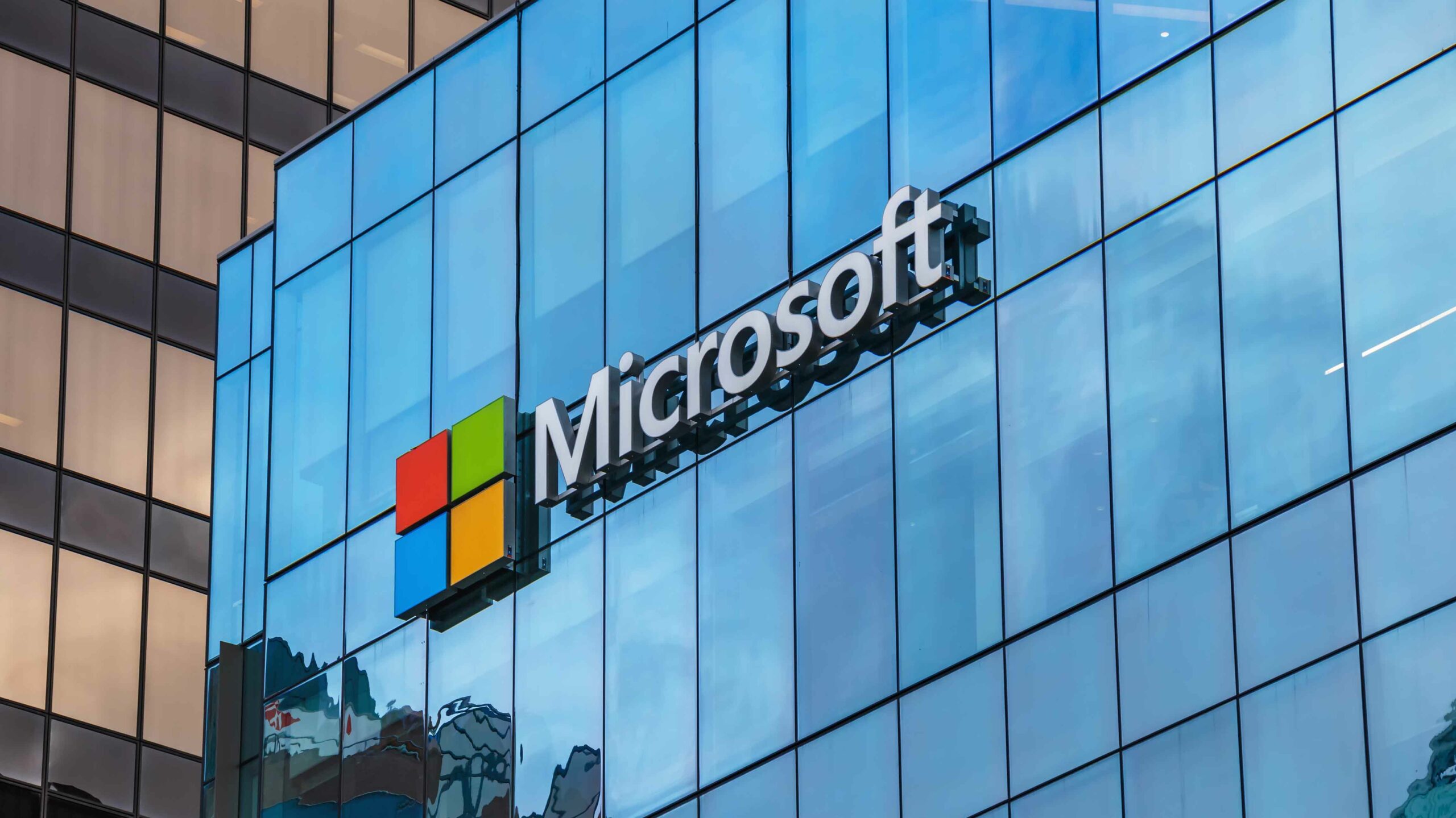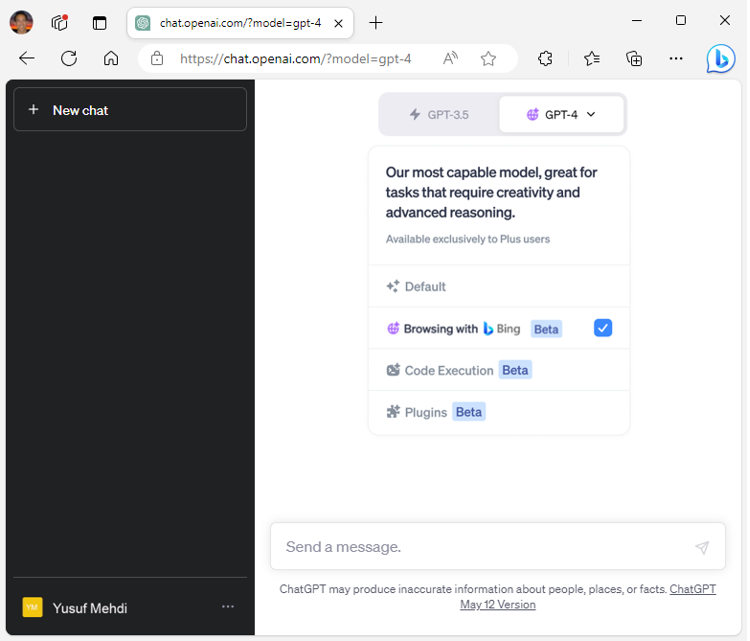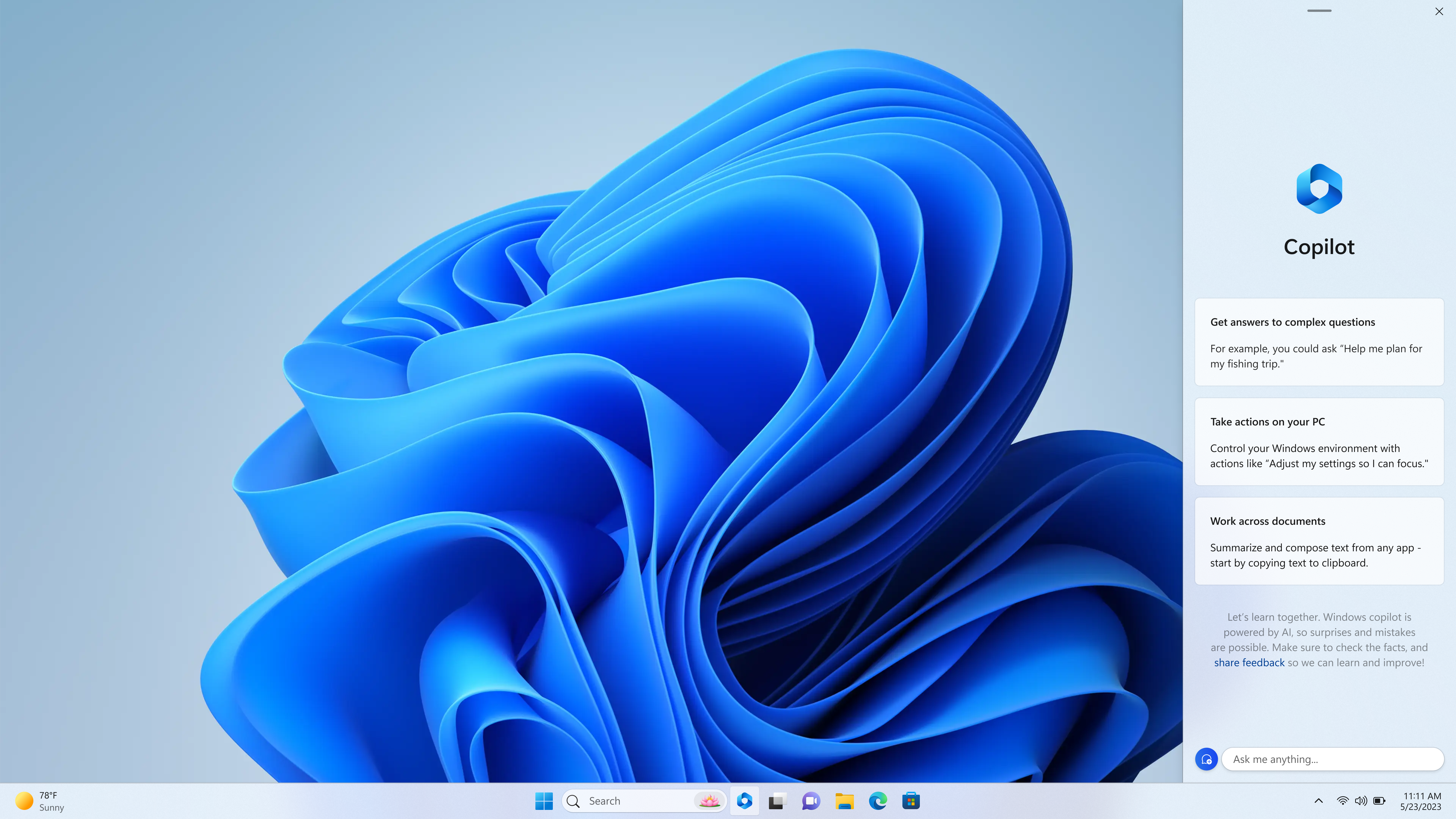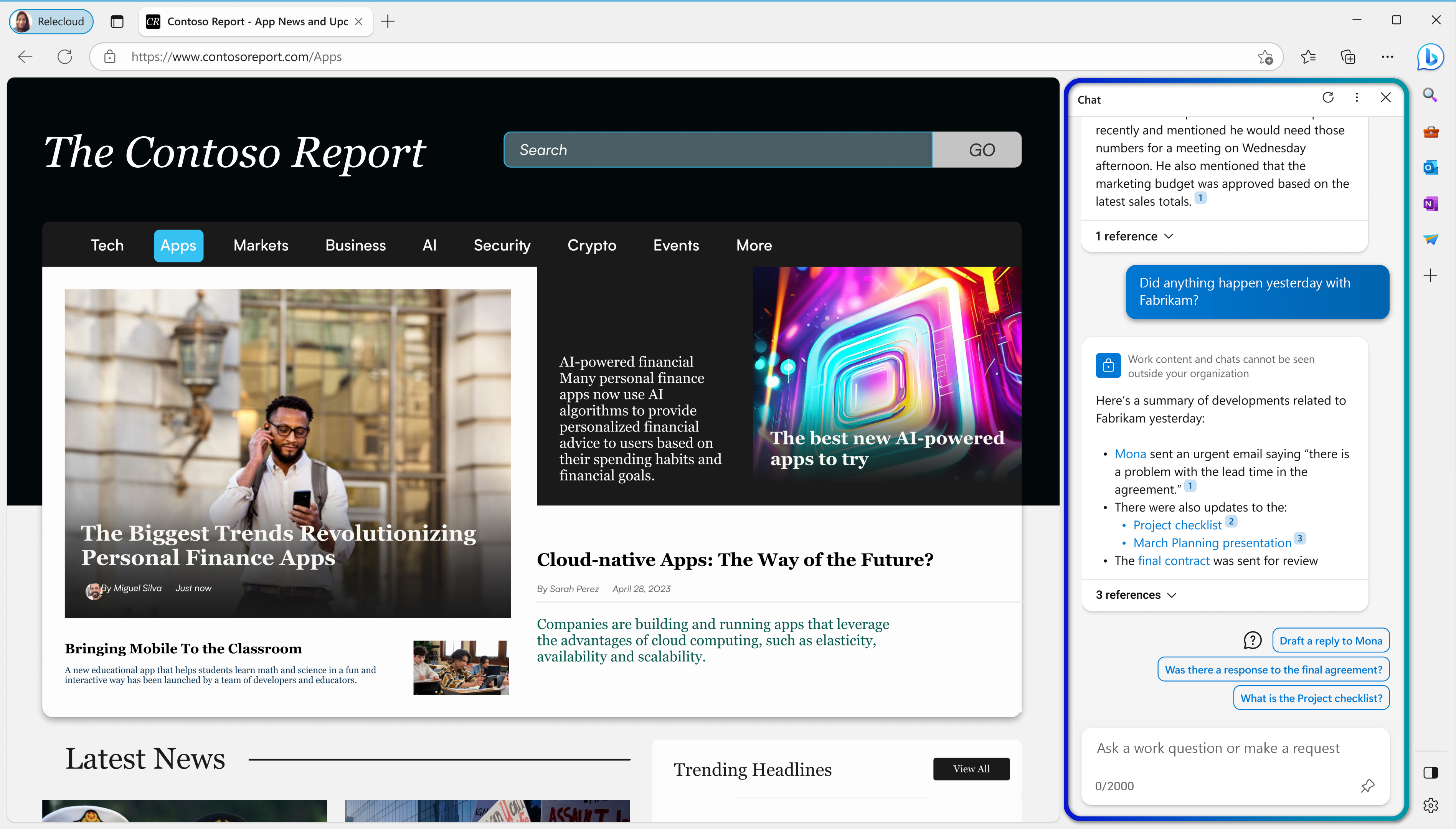
Microsoft kicked off its Build 2023 developer conference on May 23rd, and unsurprisingly, the focus is squarely on AI.
The company detailed plans to adopt OpenAI’s open plugin standard, extend Microsoft 365 with plugins, and even bring in a copilot for Windows 11, among other things. Being a developer conference, not every announcement was super interesting, so we’ll keep our focus on the big, exciting news here.
Before we dig in, it’s worth clearing up copilots and plugins. Microsoft says copilots refer to apps that use “modern AI and large language models (LLMs)” to help people. This includes things like GitHub Copilot, which can assist developers with coding, or the various copilots Microsoft announced for apps in its Office suite.
Plugins, on the other hand, are tools that enable LLMs to interact with more application programming interfaces (APIs), enabling them to do more. For example, plugins could help hook LLMs into real-time information, connect with company data, and more.
Understanding these two things is key to many of Microsoft’s announcements at Build. First, Microsoft announced it would use the same open plugin standard as OpenAI uses for ChatGPT. That means the same plugins that expand the capabilities of ChatGPT will now work for Microsoft’s various copilots.

Bing Search in ChatGPT. Image credit: Microsoft
More than that, adopting the plugin standard means that developers can now use one platform to make plugins that work across ChatGPT, Bing, Microsoft 365 Copilot and more.
Speaking of Bing, Microsoft announced Bing would be the new default search experience in ChatGPT, which is rolling out to ChatGPT Plus subscribers starting today. Free users can enable it soon via a plugin.
Wrapping up the plugin news, Microsoft said it would allow developers to extend Microsoft 365 Copilot with plugins, with over 50 plugins available from partners like Adobe, Atlassian and more.
Windows Copilot preview coming in June

Windows Copilot | Image credit: Microsoft
Microsoft says Windows will be “the first PC platform to centralize AI assistance” thanks to Windows Copilot, which builds off the integration of the AI-powered Bing into the Windows 11 taskbar.
Unfortunately, Microsoft didn’t share much more about Windows Copilot beyond that a preview would be available for Windows 11 in June.
In other Windows news, Microsoft announced some new privacy, security and accessibility features for its desktop OS. These include new app privacy settings, a new ‘glanceable VPN’ taskbar icon to indicate when you’re connected to a VPN, and support for Bluetooth Low Energy Audio (LE Audio).
The Microsoft Store on Windows will also get access to AI thanks to a new curated store section to promote “the best AI experiences.” Along with the AI Hub, Microsoft says it’s adding AI-generated review summaries, AI-generated Store keywords, and more.
Edge is getting a new look

Microsoft 365 Copilot in Edge. Image credit: Microsoft
Of course, it wouldn’t be a Microsoft event if we didn’t get some announcements about AI features in the company’s Edge browser.
Microsoft announced that it would natively integrate Microsoft 365 Copilot — which is currently in private preview — into the Edge browser. 365 Copilot leverage data from the Microsoft Graph, like calendars, emails, chats, documents, and more, and unlocks interaction with them through LLM-powered chat.
By integrating this into Edge, it enables experiences like being able to ask the 365 Copilot to generate key takeaways from a document supplied to you by a coworker.
Edge will also get support for 365 Copilot plugins and an improved ‘Find on Page’ experience with ‘Smart Find,’ which can correct syntactic and semantic errors when searching within a page.
Finally, Edge is getting a new look and feel. If you’ve followed Edge news recently, you likely will have seen some of this before. In short, the new design adopts more rounded corners to help Edge better fit with the overall Windows 11 UI. Plus, Microsoft adopted a new tab interface that looks a lot like Firefox.
Other announcements
Microsoft made several other announcements during the opening of Build 2023. The company introduced a new Azure AI tool to help developers build and deploy next-gen AI apps.
The company also detailed some responsible AI updates, including a new Azure AI service to help create safer online environments, expanding the ‘Responsible AI’ dashboard for text and image data, and new ‘media provenance capabilities’ in Microsoft’s Designer and Bing Image Creator tools that aim to help verify when images and videos are generated by AI.
Microsoft also unveiled ‘Fabric,’ a unified analytics platform, along with Copilot in Fabric, to help customers work with the data in Fabric.
Image credit: Shutterstock
MobileSyrup may earn a commission from purchases made via our links, which helps fund the journalism we provide free on our website. These links do not influence our editorial content. Support us here.


